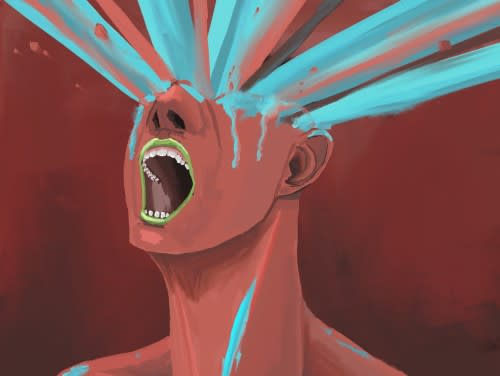Do you have anxiety overload? You could have GAD

posted 4th March 2022
Many people will at some point in their lives find themselves feeling completely emotionally overwhelmed, life just seems too hard, minor tasks take on the appearance of insurmountable mountains requiring extreme depths of mental exertion to overcome. Why suddenly does the thought of renewing the car insurance cause you sleepless nights? It never bothered you in the past so why now?
Generalised anxiety disorder is defined as ‘excessive anxiety and worry occurring more days than not about a number of different events leading to an individual finding it difficult to control worry’.
Causes of GAD
The causes of Generalised Anxiety Disorder are unique to each individual, sometimes patients can identify the start of their anxiety back to a ‘trigger’ event such as a sudden bereavement or violent event, but in most cases it is caused by a prolonged series of ‘small stress events’. We must remember that anxiety and stress are the body's natural defence system and are used to protect us from danger. If an individual senses a real threat then the body naturally responds by releasing stress hormones such as adrenaline and cortisol, which heighten our awareness and prepare us for ‘flight or fight’. This is an extremely useful tool if you find yourself the victim of unexpected danger, however the problem arises when the individual begins to interpret all events as requiring the “fight or flight’ hormone response and they find even shopping to be an overwhelmingly stressful event.
Diagnosing GAD
GAD is very difficult to diagnose because the anxiety moves from one primary source to another and does not go away, it simply shifts focus. An individual could quit their job believing that this is the main source of their anxiety and then find they are getting just as anxious about the school run in the mornings. It takes time for an individual to realise their responses to even minor stresses are extreme as in their minds the threat and danger are very real and they do not understand when others do not appear to show the same level of distress as they do when they experience the same situation. As Helen, a former NHS midwife, explained:
‘ I quit my job in 2018 as I suddenly found the normal daily stresses of the job unbearable. I couldn't sleep at night, as I would spend hours ruminating over all the possible things that could go wrong on the wards, even though major incidents were not that frequent. In the end I decided it was too stressful and I decided to leave and take on a part time role believing I would be less stressed, I wasn't. Suddenly I was having sleepless nights ruminating over the traffic and roadworks that I might face on the way to the houses of those I was caring for, I would overreact to the slightest event and find my heart would race and my mouth would go dry at a doorbell ringing. To me the level of anxiety I was experiencing seemed normal, but eventually I realised something was very wrong. I could have locked myself in the house alone and I would still have found something to worry excessively about. It was at this point that I decided to get help and chose a treatment plan that was right for me. I still get anxious, but I am now better able to identify when I am overreacting to the level of threat and I have learnt techniques that help me keep my anxiety under control’.
Treatment for GAD
There are a number of different treatment plans available that individuals can use to help control and alleviate the symptoms such as medicines and talking therapies.
Medicines
For more severe cases a doctor may prescribe a type of antidepressant called selective serotonin re-uptake inhibitors (SSRIs) to help alleviate the symptoms.
Psychological Therapies
Psychological therapies like cognitive behavioural therapy (CBT) in which you will learn how to recognise and challenge unhelpful thinking patterns and behaviours that may perpetuate your anxiety. There is also a focus on exploring a person’s relationship with worry, in that some often find it hard to let go as to do so may mean they are not prepared if things eventually go wrong.
At the London Psychologist Clinic we adopt that latter approach of talking therapies but can also advise on the pharmacological approach and make referrals where appropriate.



